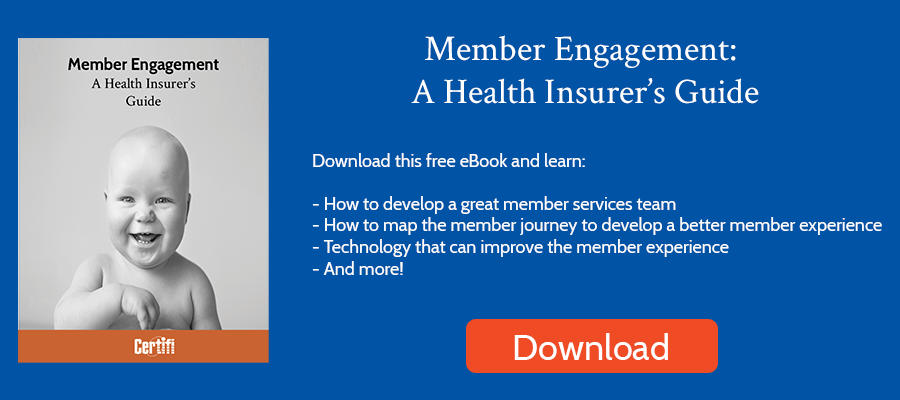In late January of 2023, the Centers for Medicare and Medicaid Services (CMS) released a long-awaited final rule addressing Medicare Advantage risk adjustment data validation (RADV). The rule will impact the audits CMS performs to ensure the accuracy of payments it makes to Medicare Advantage health plans.
Here’s a look at the background of Medicare Advantage risk adjustments, auditing those adjustments, and the impact of the Medicare Advantage RADV final rule on health plans:
What are Medicare Advantage risk adjustments?
Medicare Advantage plans are paid based on the health status of their enrolled beneficiaries. CMS pays each Medicare Advantage plan a monthly amount for each enrolled beneficiary. CMS adjusts those payments to account for differences in health status among enrolled beneficiaries. With risk adjustments, CMS aims to provide a more accurate reflection of the cost of providing medical care to beneficiaries with chronic conditions or other health challenges. It also gives Medicare Advantage plans an incentive to sell plans to high-risk beneficiaries instead of cherry-picking low-risk members.
Generally, the Medicare Advantage risk adjustment system assigns a risk score to each beneficiary based on their health status, demographic information, and utilization of healthcare services. Higher risk scores correspond to a higher level of health risk. Plans with a higher proportion of high-risk beneficiaries receive higher payments to reflect the increased cost of providing care to these individuals.
The risk adjustment system helps to ensure that CMS pays Medicare Advantage plans equitably based on the health needs of their enrollees.
What is the Risk Adjustment Data Validation Program?
CMS established the Medicare Risk Adjustment Data Validation (RADV) Program to validate the accuracy of risk adjustment data submitted by Medicare Advantage organizations. CMS designed the RADV Program to identify and correct errors in that data. The program helps to ensure that the payments made to health plans accurately reflect the health status of the beneficiaries they serve.
CMS randomly samples beneficiaries enrolled in Medicare Advantage plans, reviewing medical records to validate the accuracy of the submitted risk adjustment data. If CMS discovers errors, the Medicare Advantage organizations must take corrective action and repay any overpayments.
The RADV Program is a tool that ensures the Medicare program is functioning efficiently and effectively. By conducting regular audits and data validation, CMS can identify and correct errors in the risk adjustment data. Those audits help to maintain the integrity of the Medicare program.
What did the final rule change?
The final rule modified three key areas:
Extrapolation
CMS plans to use an undefined but statistically valid extrapolation method to recapture overpayments. The use of extrapolation means CMS will audit a sample of a contract’s beneficiaries. Then extrapolates that sample to the entire population when collecting overpayments. As a result, Medicare Advantage health plans will likely face larger payment adjustments based on the contract, not just individual beneficiary audits.
Initially, CMS indicated it may use an extrapolation methodology when auditing back to the plan year 2011. The final rule limits the extrapolation of audit results only back to the 2018 plan year.
FFS Adjustment
Some Medicare Advantage plans wanted CMS to adjust the payment calculations using an FFS Adjuster. CMS uses Medicare Fee for Services (FFS) claims data when determining Medicare Advantage payment rates. Many Medicare Advantage plans argue that this data understates the cost of providing some services. As a result, the FFS Adjuster would theoretically increase the payment rates to account for that FFS data.
After analyzing the claims data, CMS determined an FFS adjuster is not required. As a result, it will not apply an FFS adjuster to payment calculations.
Remitting Improper Payments
The final rule indicates that Medicare Advantage plans must remit overpayments in the manner specified by CMS. However, CMS failed to state what format that will be in. For plan years 2011 to 2017, Medicare Advantage plans with overpayment remittances will pay back amounts related only to individual beneficiaries. For plan years after 2018, Medicare Advantage plans must pay extrapolated values. CMS will likely collect repayments in the form of adjustments to regular monthly payments.
Will CMS audit every contract?
No. CMS will use statistical analysis and data modeling to select only those Medicare Advantage contracts expected to be at higher risk. CMS indicated that 30 contracts per year were audited for plan years from 2011 to 2013. It likely will audit at that same pace in the future.
How will the Medicare Advantage RADV final rule impact health plans?
The final rule could significantly impact the amount of money Medicare Advantage plans will need to repay after an audit. By CMS estimates, it expects to collect only about $41.1 million for plan years from 2011 to 2017. It estimated about $2 billion would be collected if it applied extrapolation to those plan years. CMS estimated recoveries amounting to $4.7 billion from 2023 through 2032.
AHIP, one of the largest trade associations for health plans, didn’t mince any words in responding to the final rule: “This rule is unlawful and fatally flawed, and it should have been withdrawn instead of finalized. The rule will hurt seniors, reduce health equity, and discriminate against those who need care the most. Further, the rule would raise prices for seniors and taxpayers, reduce benefits for those who choose MA, and yield fewer plan options in the future.”
The Alliance of Community Health Plans, whose members are mostly regional health plans, also reacted negatively to the final rule. ACHP President and CEO Ceci Connolly commented, “This rule comes with enormous costs and fails to target the most egregious diagnosis coding violations. We believe that our members submit accurate risk adjustments for beneficiaries and are upfront in correcting errors when found. We are disappointed by the final regulation and hope CMS reconsiders more targeted approaches to meaningfully address compliance in the MA program and protect the taxpayer dollar.”
CMS expects to begin beneficiary-level audits and overpayment collections for the plan years 2011 through 2017 this year. It expects the contract-level audits with extrapolated amounts to begin in 2025.
Certifi’s health insurance premium billing and payment solutions help healthcare payers improve member satisfaction while reducing administrative costs.



